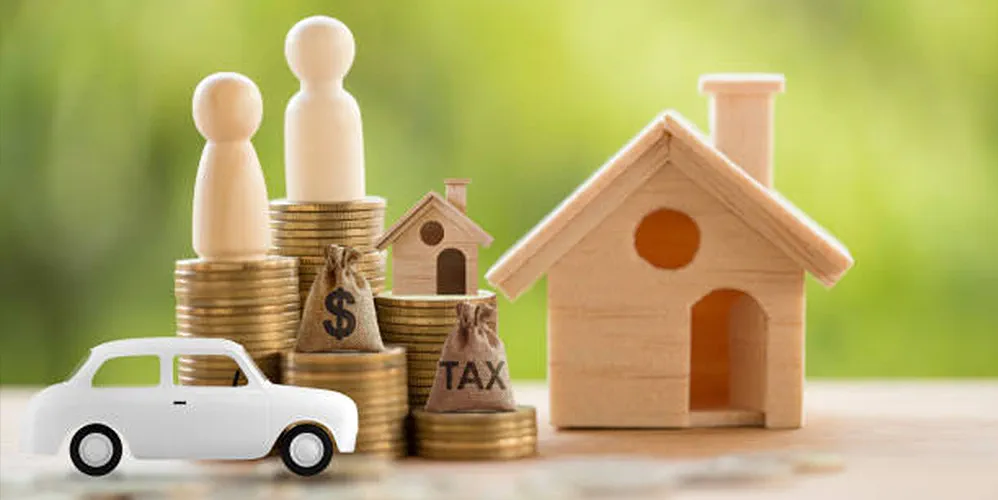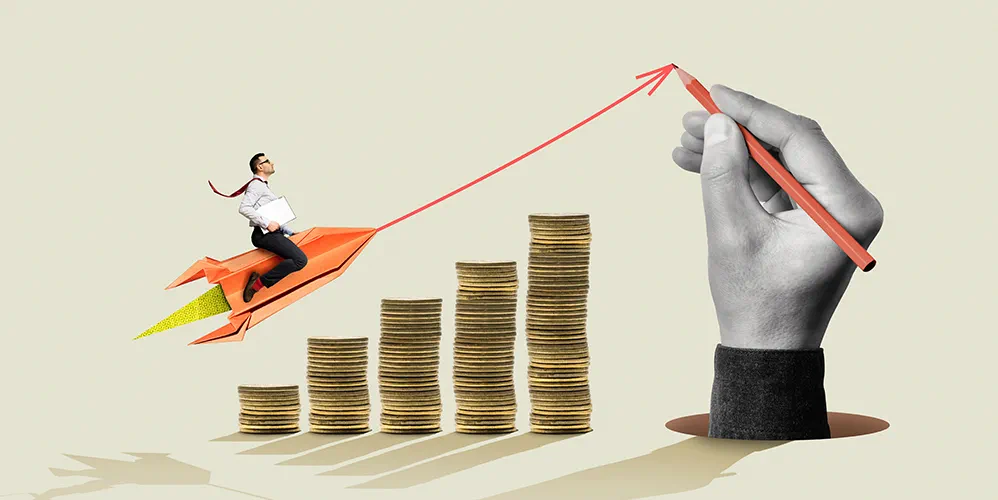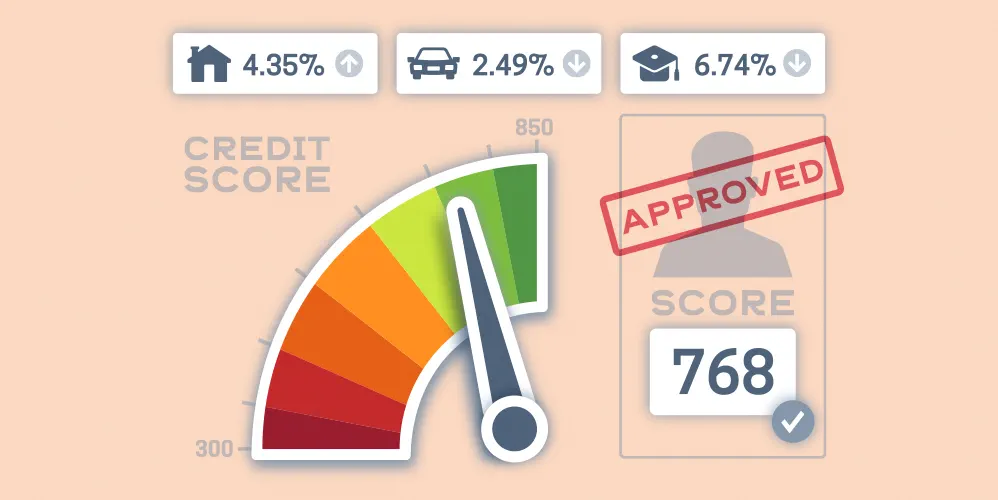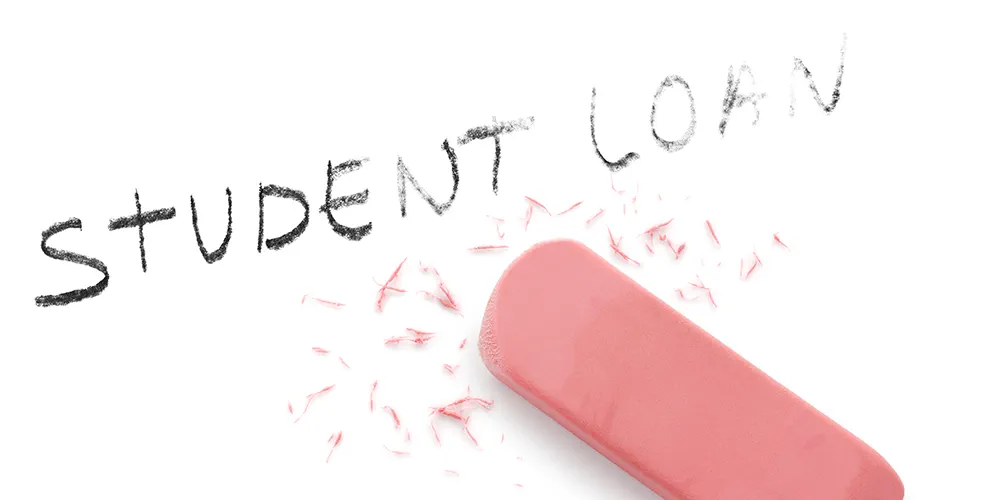
Difference Between Secured and Unsecured Loans
04 Feb 2022

Table of Content
A loan is one of the best ways to finance your dreams or meet sudden expenses. There are several types of loans available in the market today that serve various purposes. For example, a car loan is designed to finance the purchase of your dream vehicle whereas a home loan is curated to help you buy a house. You can also opt for a personal loan that has no restriction on the end use. Now, each of these different loans are categorised based on security charged with the lender. Accordingly, your loan may be classified as secured or unsecured. Let’s gain a deeper understanding of the differences between secured and unsecured loan types.
What is secured loan?
A secured loan is a type of loan that requires you to provide Security i.e. tangible security properly charged to the Bank and do not include intangible securities such as guarantees to the lender if you want to borrow money from them. Real estate, vehicles, securities, jewellery, and other such assets of high monetary value are accepted by the banks as collateral.
Secured loans generally help borrowers enjoy a comparatively lower rate of interest and lenient borrowing terms. This is because collateral-backed loans are usually less risky for the lender as they have an assurance of repayment.
However, life is unpredictable and there may be times when you do not have enough money to make the monthly EMI payment. If you default on the EMI payments of a secured loan, the lender has the legal right to take possession of the collateral. This is done so that the lender may recover the money that you borrowed from them. Fortunately, lenders typically provide a three-month duration for you to clear off all your defaults and get back on track with your EMI payments.
What is unsecured loan?
An unsecured type of loan does not require you to provide any Tangible security to the lender when taking a loan from them. These may have comparatively higher interest rates as compared to secured loans due to the absence of security. The creditor grants you the loan mainly by assessing your ability to repay the debt. This is done by analysing your bank account statements and CIBIL score, among other factors. Having a stable source of income can help you procure an unsecured loan with ease. A stable employment history along with references are also considered by banks when reviewing your application for an unsecured loan. Lenders also take into consideration your monthly income in combination with your existing debts. This helps them accurately understand your financial capacity for repaying the loan.
An unsecured loan is a great option for people who need to borrow money but have no collateral to pledge. Thus, even if you do not have assets like a home or jewellery, you can still get the funding that you need.
Difference between secured and unsecured loan
Let’s sum up the differences between secured and unsecured loans in a table:
| Secured Loan | Unsecured Loan |
|---|---|
| Requires you to submit collateral to the lender | Does not require you to produce any tangible security |
| Charges a relatively lower rate of interest | Usually charges a higher rate of interest |
| Usually easier to procure as the banks have a collateral for safety | Slightly more stringent process |
| Generally offers a longer repayment tenure | Has a relatively shorter loan repayment tenure |
| The maximum loan amount granted is generally higher | The maximum sum granted is comparatively lower |
| Collateral can be seized if borrower defaults on payments | No risk of losing any collateral |
Secured vs unsecured loan: Which is better?
Now, you may wonder which is the better option between these two types of loans. Honestly, there is no right or wrong answer as the loan choice depends on your unique needs and capacity as a borrower.
Opting for a secured loan, also known as a collateral loan, is beneficial if you are seeking a relatively lower rate of interest to pay and want to enjoy a longer loan tenure. On the other hand, an unsecured loan is the apt choice for individuals who are looking to borrow money but do not have any tangible security to offer to the lender. If you have a good credit score and a stable source of income, an unsecured loan can be procured quite easily.
Types of secured loan and unsecured loans
Secured loan example
Here are some of the main types of secured loans available:
Car loans
These loans are designed to help you finance the purchase of a car. You need to make a certain percentage of down payment and the lender finances the rest. Lenders generally finance up to 90% of the car loan
Home loans
A home loan can be taken to buy new property or even to renovate your existing home. The home itself is the collateral in this loan. Lenders usually finance up to 90% of the value of cost of house / flat in a home loan
Gold loan
True to its name, a gold loan is a loan that is given against gold that you keep with the lender as collateral. Once you pay off the loan, you get your gold back. If you default or cannot pay, the lender make keep the gold to recover their dues.
Unsecured loan example
There are many types of unsecured loans as well. Here are a few examples:
Personal loans
Personal loans can typically be taken for a sum up to Rs. 15 lakhs. These loans do not require you to provide capital and usually charge a higher rate of interest. Personal loans can be used for various purposes and there is no restriction on how you spend the money. For instance, you may take a personal loan to consolidate many smaller loans or to pay for sudden expenses that come your way.
Education loans
These loans are used by students to pay for their college fees and finance their living expenses while at university or college. Do note that student loans taken for a larger sum of money may require you to produce collateral to the lender. This collateral could be property, gold or any other assets deemed as acceptable by the lender.
Conclusion:
Thus, we can see how a secured and unsecured loan can each offer you unique benefits and help you get the funding you need. Bank of Baroda offers several types of secured and unsecured loans on simple terms. Our loans have some of the most attractive rates of interest so that borrowing becomes easy. You can even apply for loans on our website and use our EMI calculators to understand your payments. We have an expert team of highly knowledgeable customer service agents who can help you clear all your queries. Get in touch with us today to get the funding you need in a simple, hassle-free process.
Popular Articles
Guide to Getting Agriculture Loan: Application, Eligibility & Required Documents
Tag Clouds
Related Articles










Guide to Getting Agriculture Loan: Application, Eligibility & Required Documents
-
Disclaimer
The contents of this article/infographic/picture/video are meant solely for information purposes and do not necessarily reflect the views of Bank of Baroda. The contents are generic in nature and for informational purposes only. It is not a substitute for specific advice in your own circumstances. Bank of Baroda and/ or its Affiliates and its subsidiaries make no representation as to the accuracy; completeness or reliability of any information contained herein or otherwise provided and hereby disclaim any liability with regard to the same. The information is subject to updation, completion, revision, verification and amendment and the same may change materially. The information is not intended for distribution or use by any person in any jurisdiction where such distribution or use would be contrary to law or regulation or would subject Bank of Baroda or its affiliates to any licensing or registration requirements. Bank of Baroda shall not be responsible for any direct/indirect loss or liability incurred by the reader for taking any financial decisions based on the contents and information mentioned. Please consult your financial advisor before making any financial decision.
Why Choose Bank of Baroda Housing Loan?
There is no feeling like home. Buying a house brings unmatched joy and happiness in our lives. An owned home gives us a sense of security and a feeling of achievement. Long back, people had to spend numerous years saving up a corpus to finance their dream of buying a house. But today, you do not need to do so. You can simply take a home loan.
Opting for a home loan is an excellent way to finance the purchase of your dream house. This loan allows you to pay the property amount in a systematic and periodic manner. Bank of Baroda offers home loans at attractive interest rates on easy repayment terms. The maximum tenure of repayment is 30 years, and you can apply for a top-up for five times during this entire tenure.
Benefits of taking a home loan from Bank of Baroda
At Bank of Baroda, we truly believe in simplifying the process of getting finance for your home. As such, we offer a range of loans designed to meet your various requirements. From our pre-approved home loans to home improvement loans and home loan takeover scheme, there is something for everyone. Here are a few more benefits of getting your home loan from Bank of Baroda:
• Low interest rates and processing charges
• Higher loan amounts
• Free credit card
Let’s take a closer look at why you should consider opting for a Bank of Baroda home loan to buy your next or first flat or house. We will show you how to apply for home loan by discussing home loan eligibility, fees and charges, and documentation required in detail.
Bank of Baroda housing loan eligibility criteria
To help more people finance their dream home, we have put together an easy to meet eligibility criteria.
Conclusion
Signing up for a home loan is a long-term commitment. And we, at Bank of Baroda, promise to be there for you every step of the way. From helping you sail through the documentation process with ease to offering expert advice on planning your loan repayment, we have it all covered for you.
In fact, you can now apply for a housing loan with Bank of Baroda online with a matter of a few clicks. We hope this was a great read for you today.
Documents Required for Loan Against Property - A Complete Checklist
Meeting significant expenses like the cost of an overseas education, a wedding, home renovation, or medical expenses can be challenging. Your credit card may not be sufficient for meeting these costs.

